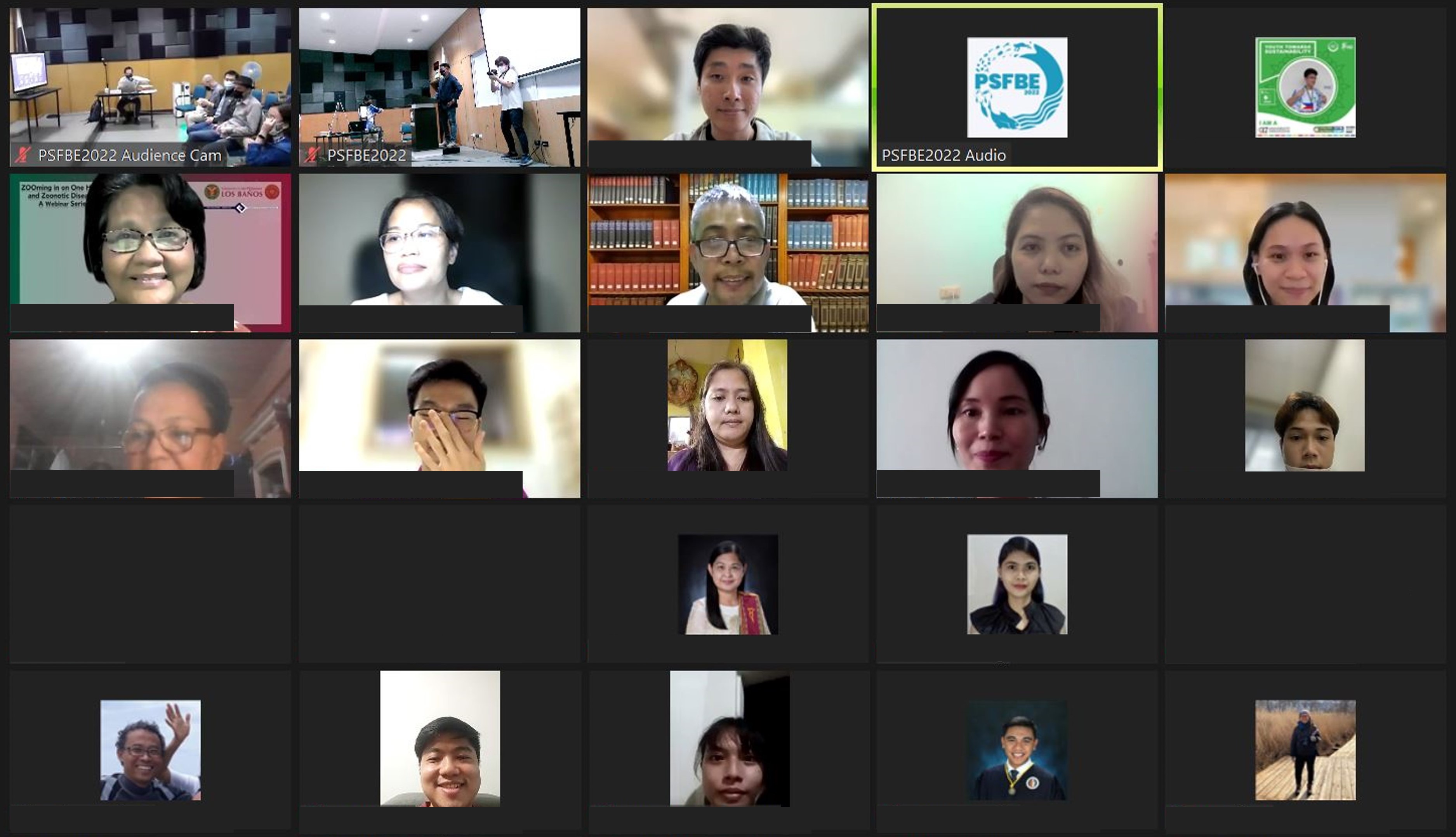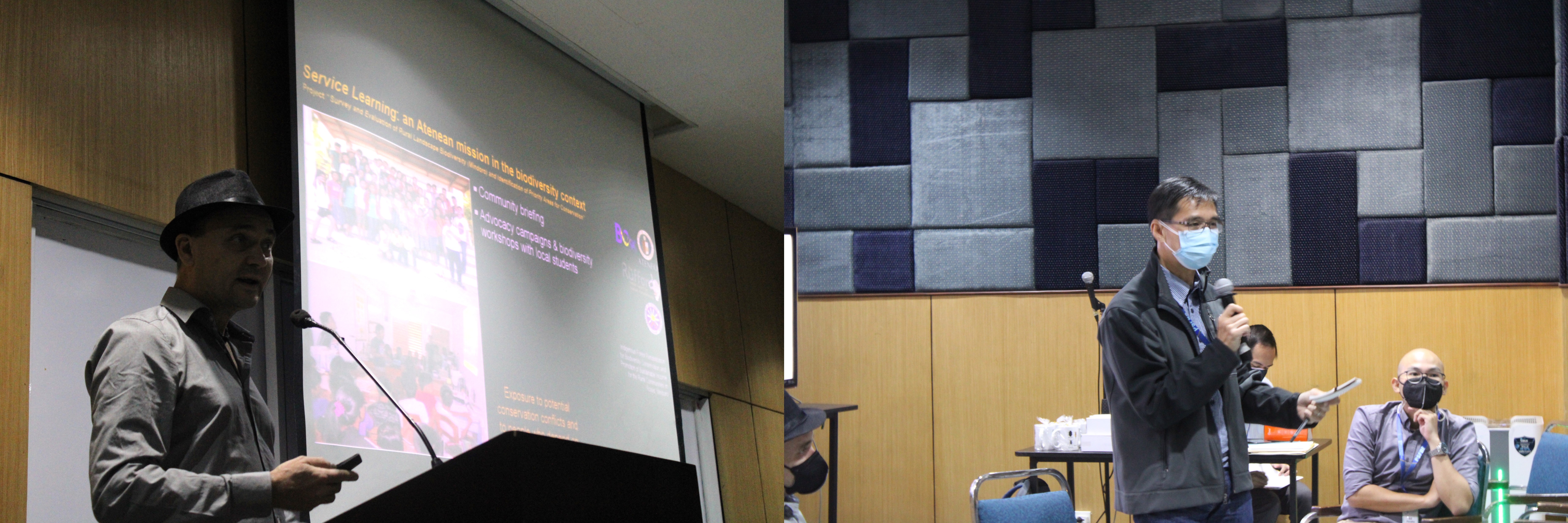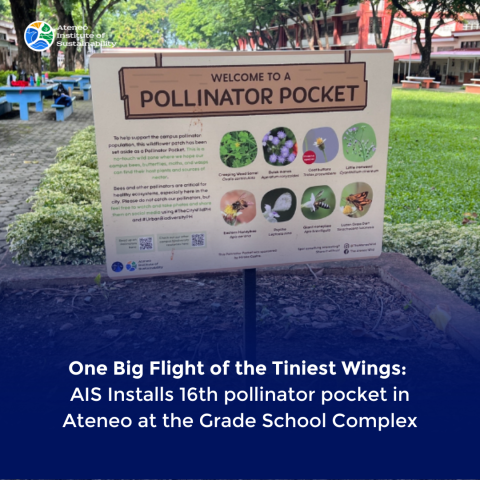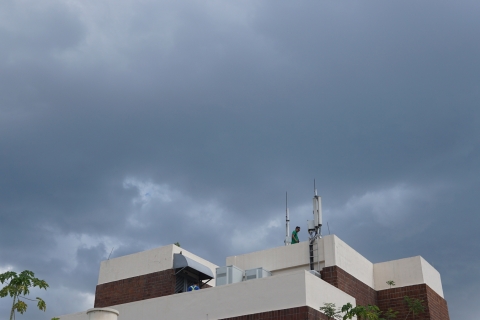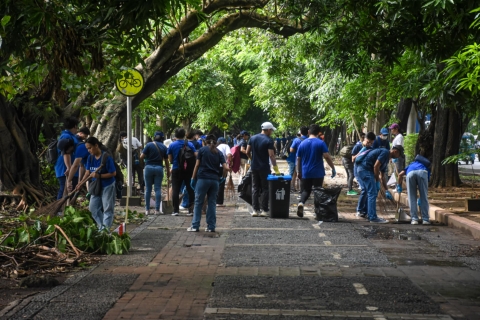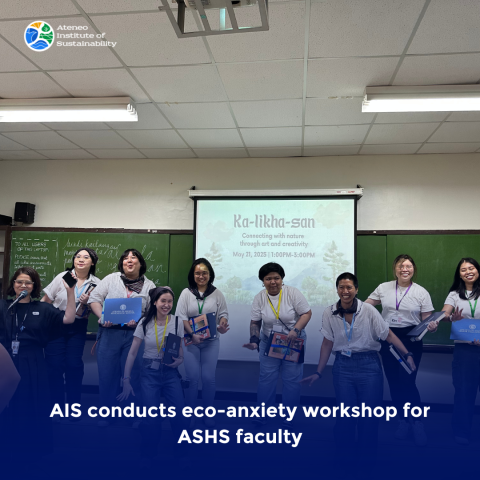AUN-EEC, Biodiv Lab, BIO-PHIL, PSFS partnered for a roundtable discussion on teaching biodiversity
16 Jan 2023
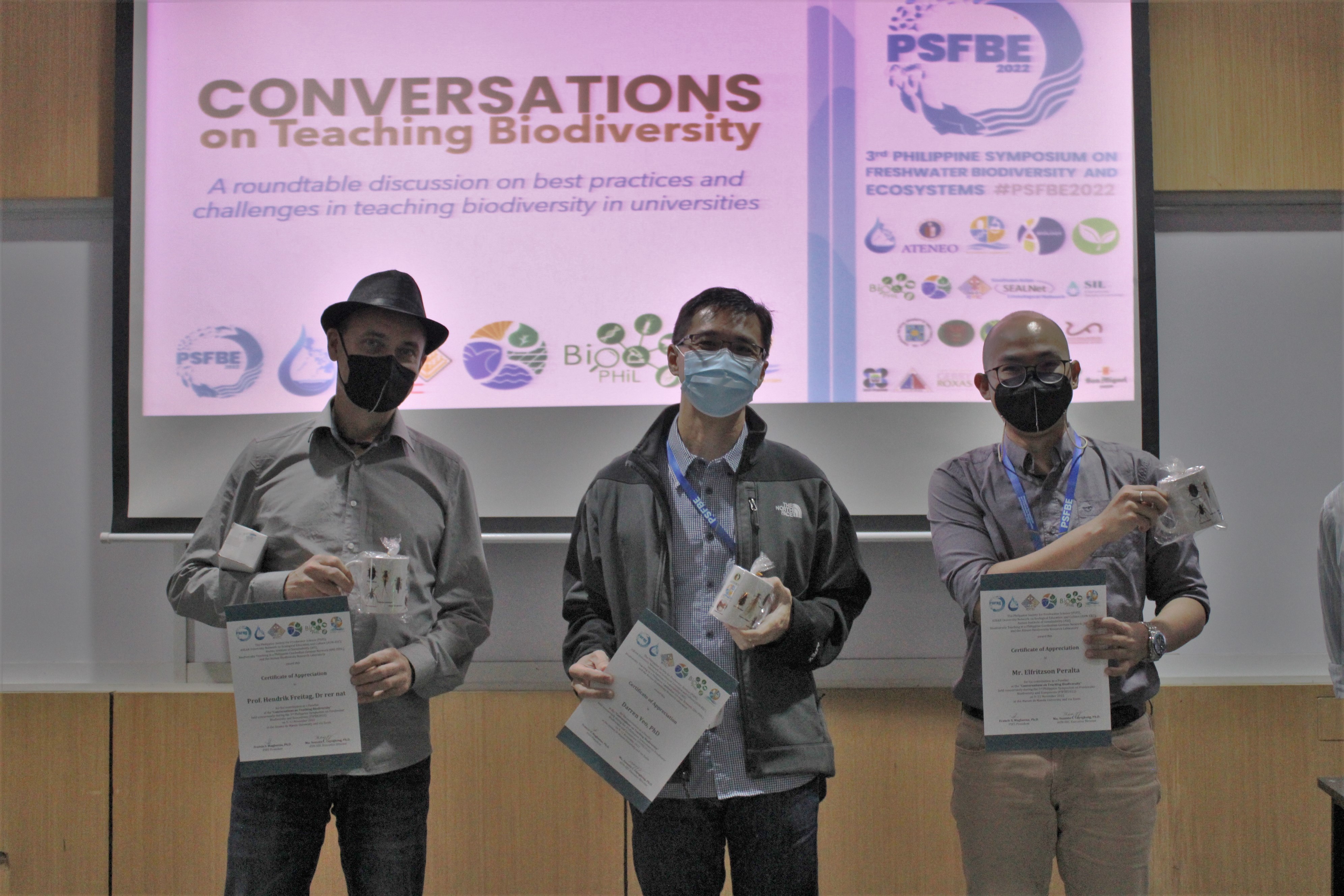
A hybrid roundtable discussion entitled “Conversations on Teaching Biodiversity” was jointly organized by the ASEAN University Network on Ecological Education and Culture (AUN-EEC), Ateneo Institute of Sustainability (AIS), the Ateneo Biodiversity Research Laboratory, Biodiversity Teaching in a Philippine-Cambodian-German Network (BIO-PHIL), and Philippine Society on Freshwater Sciences, Inc. (PSFS) last November 10, 2022.
In her opening remarks, AUN-EEC Executive Director Dr Maria Assunta Cuyegkeng invited the on-site and Zoom participants to be open for discourse. She said that the question to be addressed in the roundtable discussion is “What are the challenges and best practices in teaching biodiversity to the youth and university students?” Moderated by Dr Zomesh Maini of the Department of Biology, the program began with sharing from three esteemed biodiversity researchers to jumpstart the conversation, and was followed by the open discussion among the on-site and Zoom participants.
For his sharing, Dr Hendrik Freitag, the Principal Investigator of the Ateneo Biodiversity Research Laboratory and the Country Coordinator of the BIO-PHIL network, detailed the service-learning component and field work aspects of the biodiversity-allied subjects in the Ateneo. While such approach generate quality findings such as discovery of new species even among undergraduate students, Freitag added that the exposure to people who depend on ecosystem services in the visited rivers and mountains for field works deepen the appreciation and valuation of biodiversity among the students. He added that, given how daunting the environmental pressures, educators are in the position to ground the students to perform projects with limited scope and achievable targets.
The second sharer, Dr Darren Yeo, the Head of the Lee Kong Chian Natural History Museum (LKCNHM) and the Principal Investigator of the Freshwater and Invasion Biology Laboratory of the National University of Singapore (NUS), began by reminding the body about the role of educators as facilitators and moderators of the learning process. He posited that student engagement and active learning can be done through an array of activities including their outdoor biodiversity programme, workshops on documenting biodiversity, and museum tour. Yeo also added that, due to the CoVid-19 pandemic, LKCNHM and NUS were prompted to formulate virtual programs, such as gamification, virtual simulations, and workshops.
Highlighting the role of service learning and active learning in course design, Mr Elfritzson Peralta, the Coordinator for the Science, Technology, and Society & Environmental Science Cluster of the Department of Biological Sciences, University of Santo Tomas (UST), detailed the process of deliberately incorporating outdoor activities and community engagement in the existing biology majors and non-majors curricula, as well as in extracurricular activities. He added that conducting mini-research as part of the immersion program is in fact aligned with 21st Century learning skills.
Following the three sharing, the open discussion fleshed out various challenges in mainstreaming biodiversity teaching and research. Many educators and students alike also shared how challenging it is to entice the youth to commune with nature and spend time outdoors. Also, several on-site and Zoom participants shared that ecological education is competing for attention amidst the plethora of distractions in this age of information. To this, numerous participants, however, shared their success stories in using alternative media, such as Twitter, Tiktok, Instagram, and Spotify podcast, in connecting to the younger generation. Noting that harnessing the capacity of such alternative media requires time and retooling, participants pointed out the role of synergy and collaboration among different fields to champion for biodiversity.
The onsite component of the event was part of the 3rd Philippine Symposium on Freshwater Biodiversity and Ecosystems (PSFBE2022) conference hosted by the Department of Biology and the Department of Environmental Science. Catering the participants from different parts of the globe, the online session was streamed via Zoom, with online participants from eight different countries being able to interact with the onsite participants.
The “Conversations on Teaching Biodiversity” session was made possible by the event organizing team composed of Dr Emmanuel Delocado (Bio, AIS), Ms Aleli Diaz, Marti Tan, Gavin de Vera, Jenica Sy, and Rael Banzon (AdMU Biodiv Lab).
